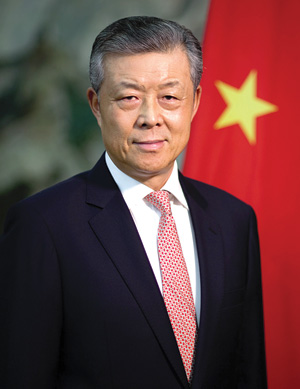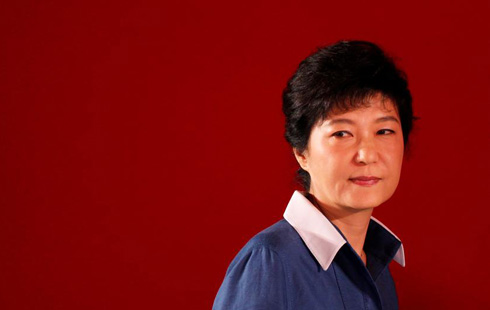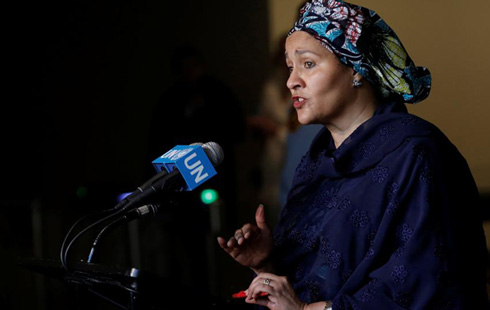Let's achieve more 'golden fruits' during 'golden era'
By coordinating responses in many areas, China and UK benefit the world
Forty-five years ago today, on March 13, 1972, China and Britain upgraded their diplomatic ties to the ambassadorial level. This was a milestone in the history of China-UK relations. Today, by the WHO's definition of the beginning of middle age, the China-UK relationship at 45 is entering a new phase of increased maturity.
|
 |
|
Liu Xiaoming, China's ambassador to the UK praises cooperation and creativity |
Such maturity, honed by 45 years of wind and rain, is embodied by the 5 C's, that is, the comprehensive, cooperative, coordinative, creative and constructive nature of China-UK ties.
This comprehensive relationship covers a wider range of areas than ever before and is taking on a greater global and strategic significance. From comprehensive partnership to comprehensive strategic partnership and then to global comprehensive strategic partnership for the 21st century, the China-UK relationship is now entering a "golden era" for all-round development.
The cooperative nature of this relationship is evidenced by the increasing quality and quantity and the maturing mechanisms of the bilateral cooperation. Together, China and Britain have established a series of high-level dialogue mechanisms, including the annual Prime Minister's Meeting, the Economic and Financial Dialogue, the High-Level People-to-People Dialogue and the Strategic Dialogue, plus a few dozen ministerial-level consultations and dialogues. In many respects China-UK cooperation is a pacemaker for China's overall relations with the West.
Good coordination is another key feature of China-UK ties. The two countries have worked together effectively within multilateral frameworks, such as the UN and the G20. By coordinating their efforts on counter-terrorism, climate change, global governance and many other major regional and international issues, China and Britain have continued to make a contribution to world peace and development.
Being creative has helped the bilateral relationship achieve its potential. China and the UK have never stopped innovating where and how they can cooperate and have constantly created new highlights in their cooperation. The UK was the first major Western country to apply to join the Asian Infrastructure Investment Bank; It was the first to issue and RMB sovereign bond; It is now the largest offshore RMB center outside China. As a major power in nuclear energy, Britain is also the first among all Western countries to welcome the investment from Chinese nuclear companies.
The constructive element is crucial to the China-UK relationship. The two countries have been able to handle their differences in a constructive way, managing to shelve or resolve differences and build and expand common ground. Against rising protectionism and anti-globalization, the constructive roles of China and the UK are all the more needed as they work together to share the responsibilities bestowed on them, to promote development, to advance globalization and to be the standard bearer of free trade.
We celebrate 45 years of ambassadorial relations not only to review what we have achieved, more importantly, it is an opportunity for us to look ahead into the future.
In China right now, delegates from all around the country are gathering in Beijing for the annual sessions of the National People's Congress and the National Committee of the Chinese People's Political Consultative Conference where comprehensive blueprints are drawn for the new year. For China, 2017 is a crucial year to implement China's 13th Five Year Plan(2016-20), to deepen the supply-side reform and to advance the Belt and Road Initiative. For Britain, 2017 will witness the launch of the Brexit negotiations that is going to shape the UK's relations with the EU. It will also see great efforts here in the UK to build a "one-nation government that works for everyone" and a truly"Global Britain". Opportunities are up for grabs if China and Britain advance their respective development strategies in tandem and upgrade the level of cooperation.
Today, China-UK relations have come to a new starting point where both countries are faced with the task of building an enduring "golden era" for the bilateral ties. To achieve that, China and Britain need, as I summarized in a speech at the end of last year, mutual respect, mutual understanding, mutual trust and mutual exchanges. This is how the two countries can expand their shared interests, achieve new success in their cooperation, and manage their differences well. This is how the "golden era" can endure.
"It was the best of times, it was the worst of times." In his Davos speech early this year, President Xi Jinping quoted this famous line from Charles Dickens. To create the "best of times", China and the UK need to work together, seize the opportunities together and stand up against challenges together. We are lucky to live in the "golden era" and we are duty-bound to make it last.
We must cherish the "best of times" of China-UK relations and be more innovative in our cooperation in broader areas and greater depth to ensure that China-UK relations bear more "golden fruits" in this"golden era".



















